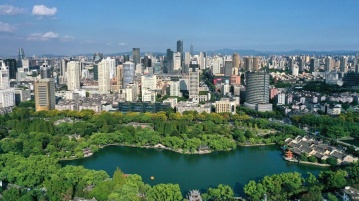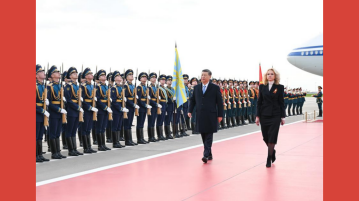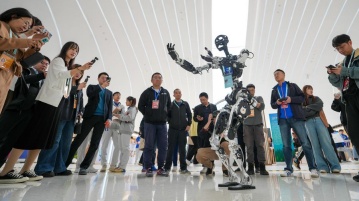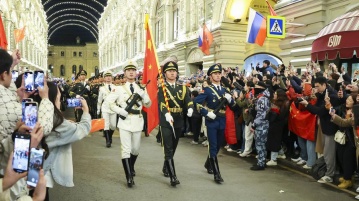Progress in China’s Endeavor to Build a Global Community of Shared Future
Under the personal planning and direction of President Xi Jinping, China’s great endeavor to build a global community of shared future continues to march forward, providing a world marked by turbulence and transformation with a force for peace, stability, and progress.
President Xi Jinping’s Elaboration on the Vision of a Global Community of Shared Future Since 2013
With humanity’s advance in mind, along with the shared and fundamental interests of the people of China and the rest of the world, President Xi Jinping has profoundly contemplated the major questions concerning our collective future, such as the kind of world to build and the way to build it.
Striving to Provide Strong S&T Support for Modern Agricultural Development
We must thoroughly implement the Central Committee’s decisions and plans, ensuring self-reliance and strength in agricultural S&T, giving greater priority to agricultural S&T development, and deepening agricultural S&T structural reform.
Remarkable Achievements in Agricultural S&T Innovation in the New Era
Since the 18th CPC National Congress in 2012, under the strong leadership of the CPC Central Committee with Xi Jinping at its core, China has ramped up the pace of agricultural S&T innovation and registered historic accomplishments.
The Significance of Driving Agricultural Development with S&T Innovation
To drive the development of modern agriculture with S&T innovation is vital for ensuring national food security, promoting the high-quality development of agriculture and rural areas, and making faster strides in building a strong agricultural nation.
Major Tasks and Measures in Developing New Institutions for a Higher-Standard Open Economy
To make solid progress in developing new institutions for a higher-standard open economy, we should focus on institutional opening up. In actively pursuing new levels of opening up for China, we should focus on deepening institutional reforms in key areas related to international exchange and cooperation—including investment, trade, finance, and innovation—and take steps to improve supporting policies and measures.
Grasping the Basic Principles in Developing New Institutions for a Higher-Standard Open Economy
The overall objective of developing new institutions for a higher-standard open economy is to establish a modern institutional framework that enables comprehensive, effective, and fair competition between enterprises under various forms of ownership; facilitates freer and more orderly flow of goods, services, and production factors.
An Analysis of the New Circumstances Facing the Development of New Institutions for a Higher-Standard Open Economy
To develop new institutions for a higher-standard open economy, we must accurately assess the new changes in the international landscape, adapt to the new trends in economic globalization, and fully grasp the new requirements for domestic reform and development.
The Significance of Developing New Institutions for a Higher-Standard Open Economy
One important goal of our effort to improve the socialist market economy is to ensure that economic entities under all forms of ownership have equal access to factors of production in accordance with the law, compete in the market on an equal footing, and are protected by the law as equals.
Contemporary Value of the Yangtze River Culture
The Yangtze River Economic Belt, which spans much of China’s eastern, central, and western regions, accounts for around half of the country’s population and economic output. It not only showcases vivid practices for advancing Chinese modernization but also offers unique solutions for developing a strong socialist culture in China.
The Yangtze River Culture—a Cultural Artery Running Through the Heart of the Chinese Nation
The Yangtze River culture has relied on the geographic space of the Yangtze River Basin to emerge and evolve as a system, capturing all the essential cultural qualities and distinctive features of this region in one cohesive whole.
The Historical Value of Yangtze River Culture
Reflecting on the 5,000-year history of the Chinese nation—from the origins of the first Chinese people and the dawn of Chinese civilization, through the growth of social productivity and the historical process of development, to the flourishing of thought and culture and the forging of our national spirit—each major event is closely tied to the nourishment and sustenance provided by the Yangtze River.











